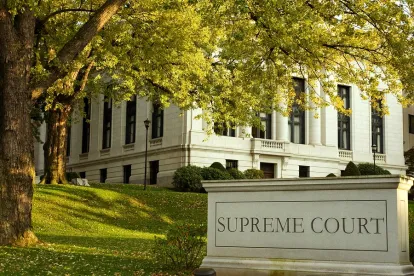Strategic in-house counsel and court-watchers are keeping a close eye on developments related to the U.S. Supreme Court’s recent commitment to further address deference to administrative interpretation of regulations, a fundamental legal principle central to the regulated community. This practice of courts resolving close questions of statutory or regulatory interpretation in favor of “expert” agencies can cause significant ripple effects to industry profitability – especially when agencies’ regulatory interpretations change.
The Supreme Court may soon resolve this issue. Late last year, the Court granted certiorari in Kisor v. Wilkie, indicating that it is ready to address administrative deference. Specifically, in Kisor, the Court is evaluating whether Auer v. Robbins and Bowles v. Seminole Rock & Sand Co. should be reversed, meaning that agencies should be afforded no (or less) deference when interpreting their own regulations.
Many commentators expected that the Trump Administration would favor this result. But that’s not what happened. The government, in its brief filed in late February, argued only that administrative deference should be limited.
Citing stare decisis as the primary reason against overturning the cases, the government argues that the Supreme Court should take this opportunity to clarify and narrow Seminole Rock and Auer as much as possible. It argues that Auer and Seminole Rock are problematic for several reasons: (1) their basis is unclear and not well grounded in history; (2) the Court’s decisions have never articulated a consistent rationale for the deference granted to agencies through the decisions; (3) the doctrine is even more difficult to justify on the basis of implicit congressional intent than Chevron v. Natural Resources Defense Council, Inc.; and (4) the cases conflate legislative and interpretative rules.
The government proposes an alternative rule: that Seminole Rock/Auer deference is inappropriate if, after applying all the traditional tools of statutory construction, the reviewing court finds that the agency’s interpretation is unreasonable—i.e., not within the range of reasonable readings left open by a genuine ambiguity in the regulation. Further, the government suggests a court should defer to an agency’s interpretation only if certain conditions are met. These conditions are: (1) the interpretation was issued with fair notice to those being regulated; (2) the interpretation is not inconsistent with prior views promulgated by the agency; (3) the interpretation rests on actual agency expertise; and (4) the interpretation represents the view of the agency as a whole.
Historically, those in favor of increased judicial oversight of agency action have sought to limit deference afforded to agencies’ interpretation of statutes and regulations. Specifically, many argue in favor of limiting or reversing Chevron v. Natural Resources Defense Council, Inc. Chevron held that courts must defer to administrative agency interpretations of the authority granted to them by Congress: (1) where the intent of Congress is ambiguous; and (2) where the interpretation is reasonable or permissible. The Supreme Court extended Chevron deference by two other decisions, Auer and Seminole Rock, to hold that agencies are entitled to deference when interpreting their own regulations as long as the interpretation is consistent with the regulation’s actual wording.
They essentially believe that Chevron and subsequent cases give executive agencies too much power and create a too large and powerful administrative state. They argue that courts should have greater leeway to take a hard look at agencies’ rules. Nixing the doctrine would effectively results in courts having greater leeway to second-guess agencies’ rules, and it would impact agencies across all industries.
Even though the Trump Administration adopted a somewhat moderate position regarding the continued existence of administrative deference, the Court may still decide to end Seminole Rock/Auer deference – which could be a game changer across the board.



 />i
/>i

